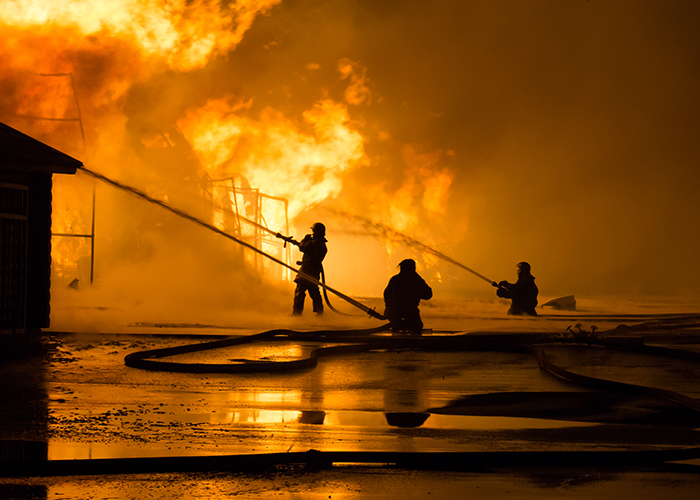In Giles v State of Queensland [2020] QDC 332, the District Court of Queensland dismissed an injured worker’s claim on the basis the State was not negligent in its management and welfare checking during his attendance at a catastrophic fire.
Facts
The plaintiff, Peter Giles, had been employed as a firefighter with the Queensland Fire and Rescue Services (QFRS) for 27 years.
In August 2011, Mr Giles was working as a pump operator to help fight a house fire in Slacks Creek where, tragically, many lives were lost.
QFRS made a deliberate decision that night to not rotate workers on site, with a view to limiting the number of personnel exposed to the catastrophic scene.
As a result of his attendance at the fire, Mr Giles developed post-traumatic stress disorder (PTSD).
Issues
The key issue was whether QFRS was negligent in its management of Mr Giles at the fire, and whether any such negligence caused his PTSD.
Mr Giles argued that QFRS breached its duty of care to him by failing to:
- rotate him to prevent extended exposure to the traumatic event
- undertake appropriate questioning and assessment of his welfare
- remove the crowd of spectators from his vicinity.
The State argued QFRS discharged its obligations to take reasonable care for Mr Giles and other QFRS employees by limiting the number of QFRS personnel at the fire. Specifically for Mr Giles, QFRS took steps to monitor his wellbeing by having senior personnel assess his welfare repeatedly during his attendance at the fire.
Credibility
Before considering liability, the Court considered Mr Giles’ credibility and reliability. Reid DCJ noted credibility was a ‘critical factor’ in determining the case.
The State argued that Mr Giles was not a credible or reliable witness. The Court accepted that argument. It held that Mr Giles had been ‘less than frank’ about various prior medical issues, including whether he had previously suffered psychological issues.
The Court’s findings about credibility heavily influenced its findings of fact.
Decision
Mr Giles’ claim failed.
In relation to the welfare checks and other support, the Court found as follows:
- Mr Giles’ supervisor and a safety officer had enquired about his wellbeing on at least four occasions while the fire was being fought.
- Mr Giles had not expressed any issues in response to those enquiries, and he did not appear to be distressed.
- Mr Giles participated in a debrief immediately after the fire, which involved being offered access to a peer support officer with FireCare.
The Court considered whether Mr Giles ought to have been rotated and made the following findings:
- The (deliberate) decision to limit the number of personnel exposed to the catastrophic scene was appropriate because, despite being catastrophic, the fire was quickly brought under control.
- (The Court accepted Prof Harvey Whiteford’s psychiatric evidence that there were competing considerations in the decision whether to rotate firefighters, and that ‘many personnel would be distressed and resentful at the idea of being removed from the scene’ before the fire was contained.)
- Mr Giles was informed of the decision to limit the number of personnel at the fire.
- There was no persuasive psychiatric evidence that, had Mr Giles been rotated earlier from his work, he would not have suffered from PTSD.
- (The Court considered a study of the emergency services personnel involved in the 11 September 2001 terror attacks, which indicated that prolonged exposure of over 200 days increased the risk of psychological injury. However, the Court noted there was no evidence that exposure of 3-4 hours rather than 8-9 hours would have prevented the injury.)
- The decision to limit the personnel involved in the fire (and therefore to not rotate Mr Giles) was reasonable.
- The Court found that the presence of the crowd was not a strong contributor to the development of Mr Giles’ PTSD.
Accordingly, the Court held that QFRS had provided sufficient welfare checks and, in doing so, had reasonably managed Mr Giles’ work duties while engaged in fighting this particular fire.
Conclusion
At the start of Reid DCJ’s long judgment, his Honour commented:
The role of a firefighter can be a demanding one and one that can place a significant emotional burden on those that perform that role to ensure, so far is can be done, that others in the community are safe. Unfortunately that emotional burden can become overwhelming, without fault of the individual firefighter or of his employer. This is such a case.
Emergency Services personnel provide crucial community services, often in traumatic circumstances. In such situations, an employer owes an onerous duty of care to ensure all reasonable precautions for workers’ safety are taken. However, this case is a reminder that, even where circumstances may be tragic, a plaintiff needs to prove that his employer should have done more, and that such additional measures would have made a real difference.






